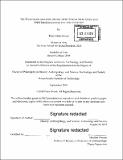Truffle crops and soil drugs : new fungal practices and epistemologies for the 21st century
Author(s)
Oviatt, Peter Gibbs.
Download1142179952-MIT.pdf (18.91Mb)
Other Contributors
Massachusetts Institute of Technology. Program in Science, Technology and Society.
Advisor
Heather Paxson.
Terms of use
Metadata
Show full item recordAbstract
Perigord truffles (Tuber melanosporum) have, over the past 200 years, become a cultivated crop grown across the globe. Since the 1890s, soil microbes have been commodified to "fertilize" agricultural crops (and are now referred to as biofertilizers, biostimulants, or simply "soil drugs"). This dissertation examines both truffle crops and soil drugs to investigate how a beneficial relationship between plant roots and fungi has become meaningful in twenty-first century industrial societies. This fungus-root connection, which exists with over eighty percent of plant species, is called the mycorrhizal symbiosis. I draw on ethnographic research centered in Corvallis, Oregon, and Dijon, France to show how mycorrhizal practitioners (from foragers and farmers to laboratory researchers and industry boosters) have struggled against the biological constraints of the mycorrhizal symbiosis and have combined agronomic and agrarian epistemologies to develop a diverse suite of "sustainable" land management practices that promise "symbiotic efficiencies." In truffle farming, this has resulted in an ethic of professionalization (with "best practice" guidelines), and a desire for what Anna Tsing has called "scale making." At the same time, a contrasting ethos of "engaged waiting" guides a subset of truffle farmers who continue to steward agrarian ecologies by remaining attuned to a wide array of life forms and extended time frames. In the biofertilizer industry, mycorrhizal science has given rise to numerous methods for producing mycorrhizal inoculants, or soil drugs. Following the work of Christopher Henke, I discuss how mycorrhizal inoculants are poised to bring about two forms of repair to soil ecologies and industrial agriculture: maintenance and transformation. With both truffle farming and the mycorrhizal biofertilizer industry, I examine the challenges and controversies surrounding the efficacy of emergent mycorrhizal practices, testing claims about ecological restoration, universal standards of practice, and the role of farm consultants. A recent wave of mycorrhizal science employs experimental systems that look beyond a singular fungus-root pair to consider broad and indeterminate communities of fungi, bacteria, and plants; this new science critiques the use of commercial inoculants in favor of reformed agricultural practice (from plant breeding to tillage regimes) that directly consider the role of soil symbionts.
Description
Thesis: Ph. D. in History, Anthropology, and Science, Technology and Society (HASTS), Massachusetts Institute of Technology, Program in Science, Technology and Society, 2019 Cataloged from PDF version of thesis. Includes bibliographical references (pages 255-276).
Date issued
2019Department
Massachusetts Institute of Technology. Program in Science, Technology and SocietyPublisher
Massachusetts Institute of Technology
Keywords
Program in Science, Technology and Society.